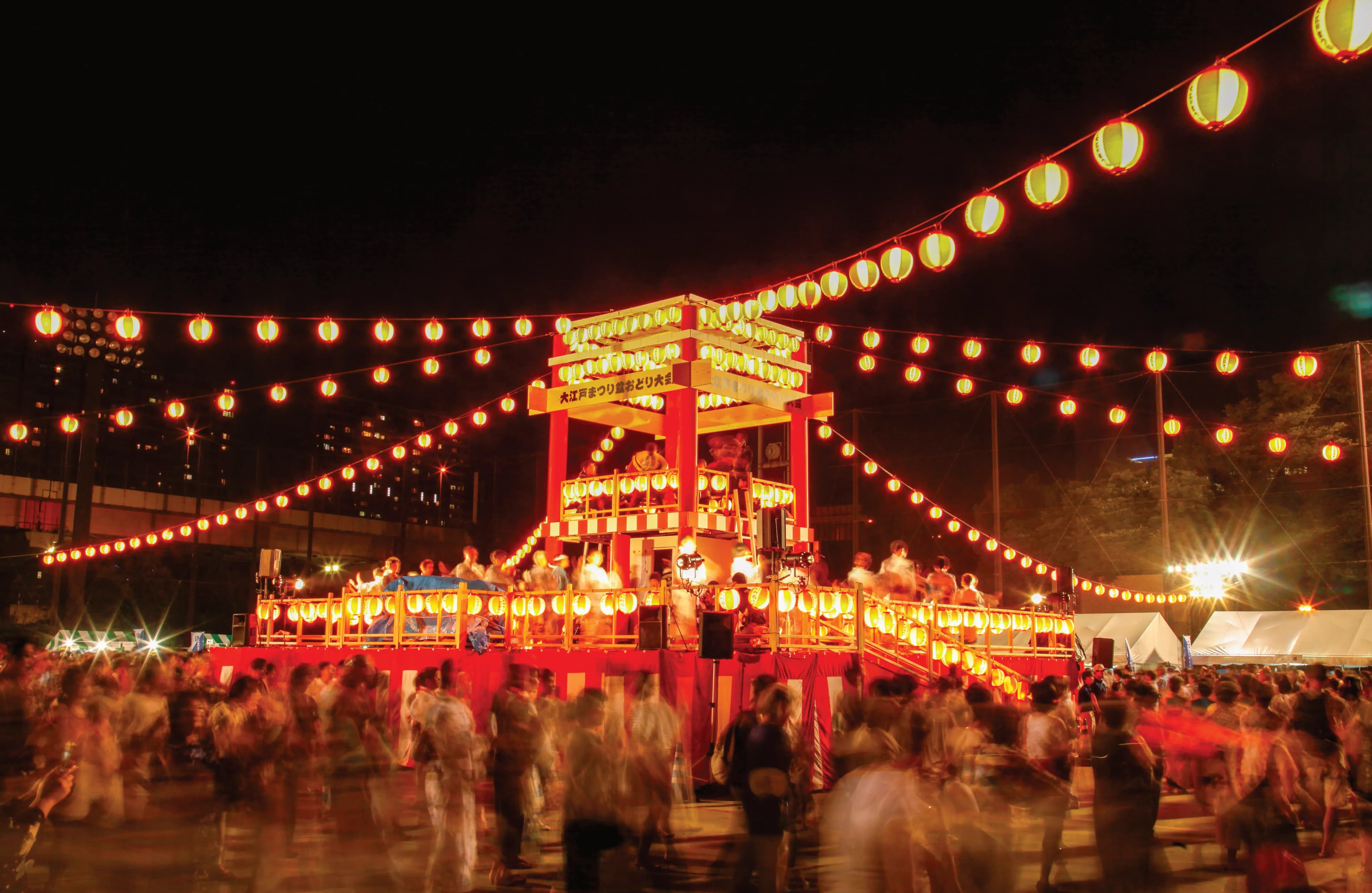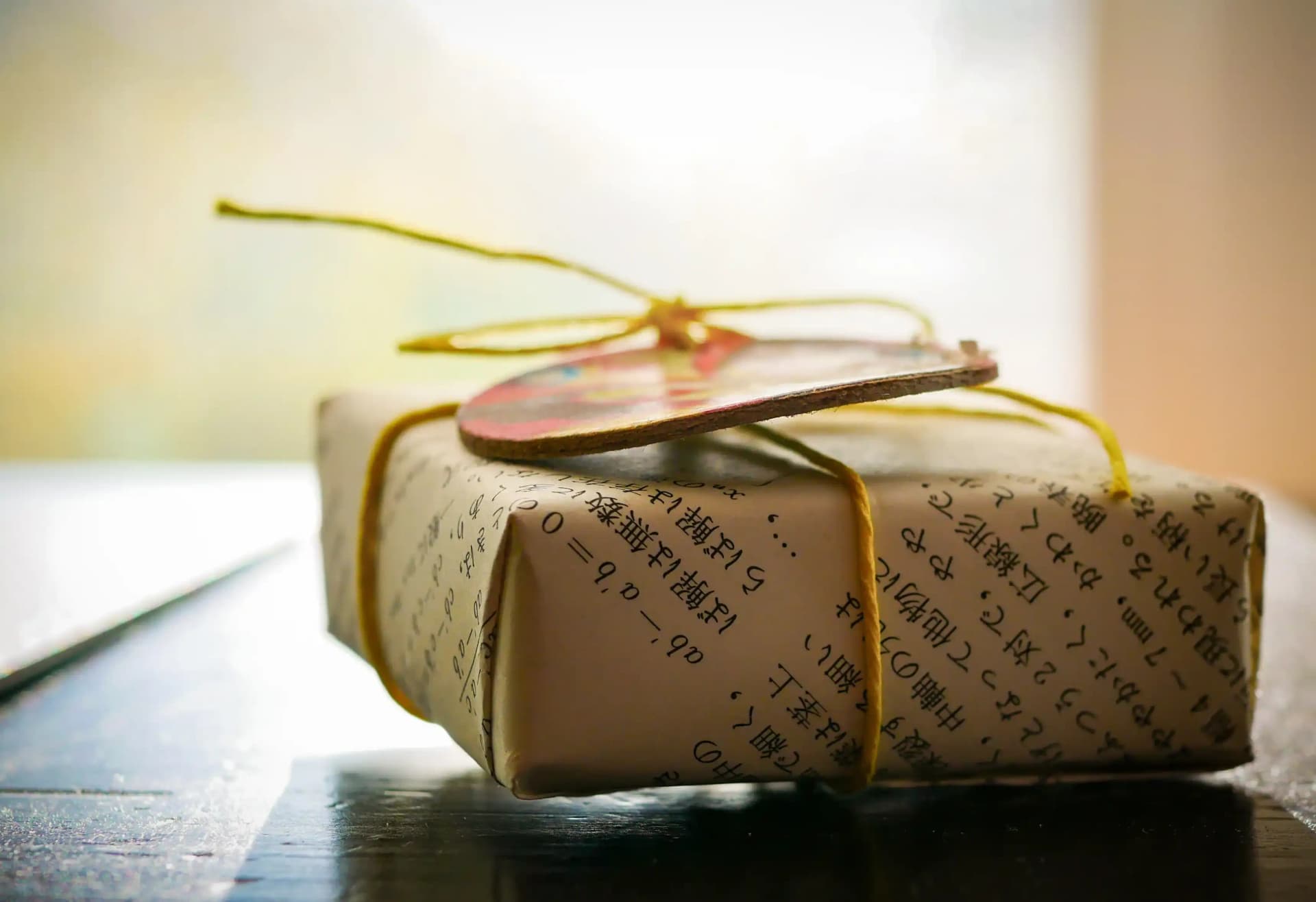Aug 11, 2025•3 min read•
Obon Japan: Honouring Ancestors
Obon (お盆) is one of Japan’s most cherished traditional holidays and has been celebrated for more than 500 years. It’s a time when families come together to honour the spirits of their ancestors. Rooted in Buddhist beliefs and enriched with centuries of cultural tradition, Obon blends solemn remembrance with vibrant celebration. Taking place every summer, it is a season of reunion, ritual, and reverence.What Is Obon?Obon, also known as Bon Festival, is a Japanese Buddhist custom. It is based on

Obon (お盆) is one of Japan’s most cherished traditional holidays and has been celebrated for more than 500 years. It’s a time when families come together to honour the spirits of their ancestors.
Rooted in Buddhist beliefs and enriched with centuries of cultural tradition, Obon blends solemn remembrance with vibrant celebration. Taking place every summer, it is a season of reunion, ritual, and reverence.
What Is Obon?
Obon, also known as Bon Festival, is a Japanese Buddhist custom. It is based on the Buddhist story of Mokuren, a disciple of the Buddha who sought to relieve his deceased mother’s suffering in the afterlife. Upon learning that offerings and acts of merit could free her spirit, he danced with joy. His story gave rise to Bon Odori, the traditional Obon dance.
Today, Obon is a period when it is believed that the spirits of deceased ancestors return to the world of the living to visit their relatives. Families prepare by cleaning graves, offering food at altars, and performing rituals to welcome and then send off the spirits.
When Is Obon Celebrated?
Obon is typically observed in mid-July (July 13–16) in eastern Japan (Tokyo and surrounding areas), and in mid-August (August 13–16) in most of the country, including Kyoto and Osaka. This difference in timing has arisen from regional observance of the lunar versus solar calendar.
While not an official public holiday, many companies close or reduce their hours during Obon, and millions of people travel to their hometowns during this time, making it one of Japan’s busiest travel seasons.
Obon Traditions
The customs followed vary from region to region across Japan but include:
Lanterns
Lanterns are hung in front of houses to guide the spirits of ancestors back home. At the conclusion of Obon, floating lanterns are placed in rivers, lakes and seas to help the spirits navigate their way back into their world.
Mukaebi and Okuribi (Welcoming and Sending-Off Fires)
On the first day of Obon, families light mukaebi (welcoming fires) at the entrance of their homes to guide the spirits. At the end of Obon, okuribi (sending-off fires) are lit to help them return to the afterlife. In Kyoto, the famous Gozan no Okuribi festival includes the lighting of massive bonfires in the shape of kanji characters across the surrounding mountains.

Butsudan and Altars
Families place offerings such as fruit, rice, tea, and incense on Buddhist altars at their homes. The altars are decorated with lanterns and sometimes shōryō uma (精霊馬) – hand-crafted eggplant cows and cucumber horses that represent the vehicles in which spirits travel to and from this world.
Bon Odori (Bon Dance)
Communities across Japan hold Bon Odori, traditional dances performed in public squares, parks, or temple grounds. Each region has its own dance and music. Dancers wear yukata (light cotton kimono) and move in simple, rhythmic patterns to music that varies by region.
Typically, Bon Odori dances involve local people forming a circle around a high wooden scaffold known as a yagura. The yagura is often also the bandstand for the musicians and singers of the Obon music.
Bon Odori is both a joyful celebration and a way to welcome spirits.
Festivals and Fireworks
Many local festivals are held during Obon, often featuring lantern floating ceremonies (tōrō nagashi). Fireworks displays also add to the festive atmosphere.
Obon in Modern Japan
While deeply spiritual, Obon is also a time for family reunions, summer leisure, and community connection. People return to their hometowns, clean family graves, and catch up with relatives. Cities can become quieter as residents leave for the countryside.
In urban areas, some traditional customs have now been adapted. Virtual ceremonies, community dances in shopping centres and even digital lantern floating have emerged in recent years, especially following the COVID-19 pandemic.
Obon in Japan is a poignant reminder of the connection between the past and the present. It is a celebration of ancestry, gratitude, and continuity, a time when the spiritual and physical worlds meet, even if only for a few days. Whether participating in Bon Odori, lighting lanterns, or sharing stories around the family altar, the essence of Obon lies in honouring those who came before us.
Categories
- Export to Japan
- Japanese language and culture
- Colourful Language


